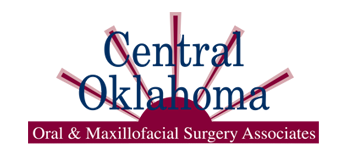Our oral surgery practice offers a number of procedures to help our patients enjoy comfortable and healthy oral function. Procedures such as wisdom teeth extraction, jaw surgery, placing dental implants, and treatment for facial trauma might seem daunting to new patients. While any oral surgery can produce swelling and bruising, our oral surgeons try to minimize discomfort with minimally invasive techniques, advanced technology, and helpful patient education for optimal recovery.
Surgeries of any kind do cause some bruising and swelling. Fortunately, post-operative discomfort can be managed with over the counter or prescription medication and using cold compresses. In fact, taking anti-inflammatory medication and using ice packs the day of and after your procedure can greatly reduce swelling and discomfort. Other tips, such as adopting a liquid and soft diet while you heal can also help keep you comfortable while you recover.
When it comes to preparing for treatment from an oral surgeon, we recommend that you thoroughly read through all patient materials our practice gives you.
When it comes to preparing for treatment from an oral surgeon, we recommend that you thoroughly read through all patient materials our practice gives you. These packets of information will help you learn what to expect during and after treatment, how to perform oral hygiene after a procedure, and what to do for a speedy recovery.
Why is a liquid/soft diet encouraged?
Adopting temporary dietary changes after surgery can help you heal and prevent discomfort. Consuming soft or liquid foods is much easier than chewing and biting food.
Since you will likely experience tenderness and swelling, hard-to-chew foods can exacerbate post-operative sensitivity. Foods that have sharp edges, such as potato chips or crackers, could actually disturb surgical sites. By eating mashed or pureed vegetables, soups, scrambled eggs, and smoothies, you can get the nourishment you need without irritating healing tissues.
You will heal faster with nutrient-dense foods. Soft and liquid diets should contain plenty of vegetables and lean protein sources. We also recommend that patients drink enough water after their procedures since the body needs to stay hydrated to function optimally.
Give our team at Central Oklahoma Oral & Maxillofacial Surgery Associates a call if you have questions about an upcoming procedure or would like to schedule a consultation with our oral surgeon.
